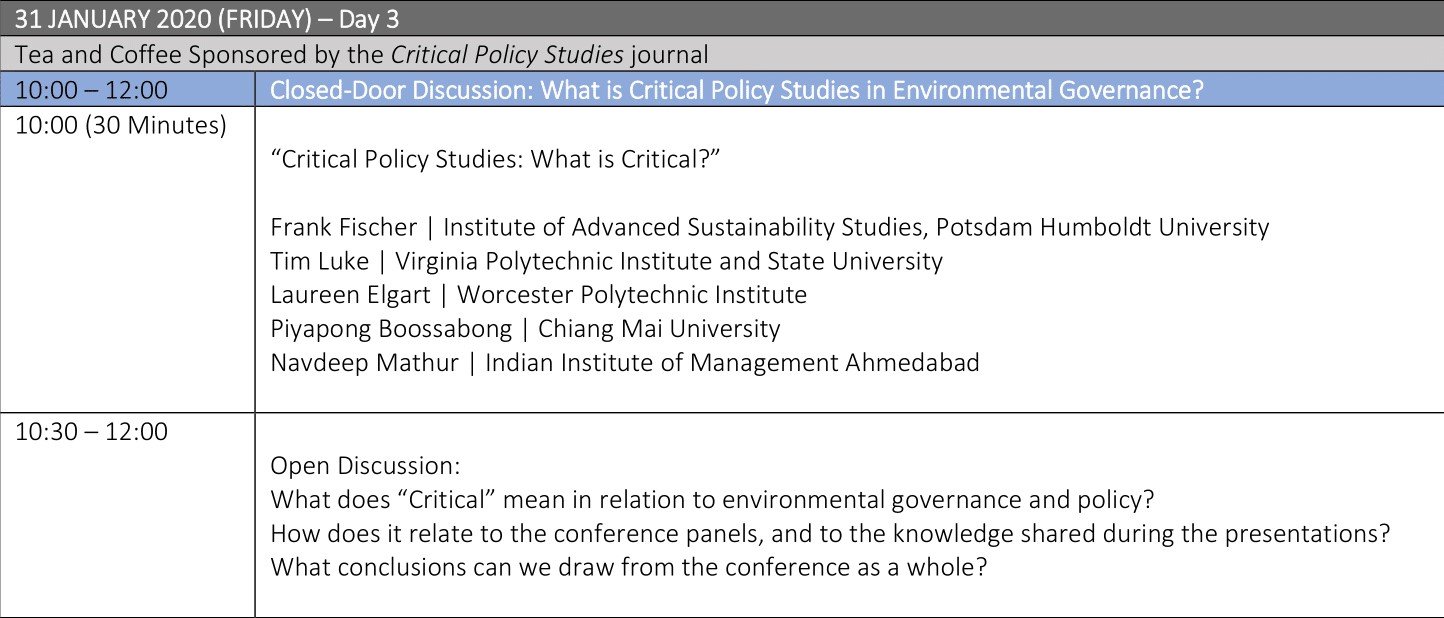This conference focuses on the interplay among policy discourses, deliberative practices, public participation and environmental governance. It examines how policy publics, politicians, citizens and other communities can influence governmental decisions, and vice versa. In particular, it focuses on these interactions in the context of the uncertainties that have been created by the rise of populism and the apparent irrationalities across different governance regimes, including the phenomenon of post-truth politics.
The conference draws attention to various environmental crises, especially those related to climate change – the challenge of this century. Granted that strong responses from ordinary citizens are required, including environmental movements, effective environmental governance also depends on knowledge and expertise. However, these processes are fraught with scientific and policy uncertainties, and they take place within a turbulent political environment, including its multiple confrontations with politics of climate denial and post-truth. It is therefore not surprising that both the problems and their sustainable solutions are often wicked and messy.
By bringing together scholars across the disciplines of environmental studies, public policy and political science, this conference seeks to foster productive discussions on new approaches to environmental issues and their intersection with governance practices. The conference spans 7 Panels, and deals with the political and policy issues related to environmental governance. The panels are: Environmental Governance: Discourse, Sustainable Practices and Democratic Systems; Governing Water Policy; Environmental Knowledge and Policy Expertise; Participation, Local Knowledge and Cultural Practices; Environmental Struggles and Political Resistance; Citizen Participation and Deliberation; Post-Truth and Environmental Policy Expertise.
The final day of the conference will involve an informal, open discussion, guided by remarks and reflections from the conference keynote and convenors. All invited speakers and presenters are welcome to attend this session, and encouraged to contribute their questions, observations and insights. General questions that will guide our discussion include: What does “Critical” mean in relation to environmental governance and policy? How does it relate to the conference panels, and to the knowledge shared during the presentations? What conclusions can we draw from the conference as a whole?


